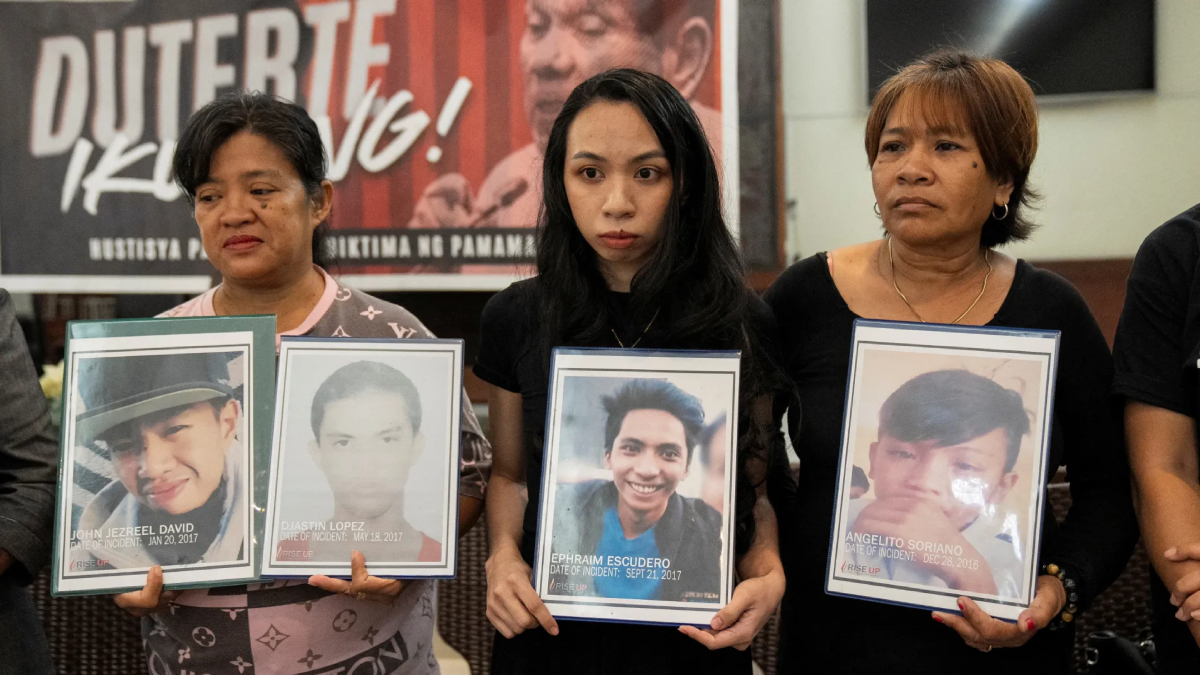Despite viral claims that only 43 cases are being looked into, a human rights lawyer clarified that the International Criminal Court (ICC) doesn’t need to investigate all 30,000 alleged deaths linked to former President Rodrigo Duterte’s bloody war on drugs to pursue a case.
Atty. Gilbert Andres, executive director of the Center for International Law Philippines, explained that in ICC proceedings, what matters are representative cases that show a pattern, not the total number of victims.
“Ang kailangan lang ‘yung example out of the 30,000,” Andres said in an interview with TeleRadyo Serbisyo. “Ang ginagawa sa ICC practice ‘yung mga emblematic examples lang nung pagpatay. Ang mahalaga maipakita na merong polisiya, ‘yung DDS [Davao Death Squad] at nung presidente si Duterte.”
This comes as critics online—and even Vice President Sara Duterte—question the lack of direct evidence linking Duterte to 30,000 killings. The Philippine government had previously reported over 6,000 deaths in police anti-drug operations, while human rights groups estimate the number could be as high as 30,000.
Andres stressed that the ICC’s job is to assess if the killings formed part of a broader policy.
“[Kailangang] ipakita na merong patayang nangyari at itong patayan na ito, hindi siya random. Merong widespread or systematic na attack sa civilian population,” he added.
The ICC defines crimes against humanity as acts that: 1) involve killing one or more persons, 2) are committed as part of a widespread or systematic attack on civilians, and 3) are known by the perpetrator to be part of such an attack.
One piece of evidence that could support this, according to Andres, is a PNP memorandum issued in 2016.
“Nakalagay dun ‘yung word na neutralization. Isa ‘yang euphemism for extrajudicial killings,” he noted. “Isa ‘yan sa mga ebidensiya na puwedeng ipakita sa ICC na talagang may polisiya ng EJK through the word neutralization.”
Senator Ronald “Bato” dela Rosa, one of the architects of the drug war, earlier denied that “neutralization” refers to killing.
On the issue of jurisdiction, Andres maintained that the ICC retains the authority to investigate because the alleged crimes occurred when the Philippines was still a state party to the Rome Statute—the treaty that established the ICC.
This counters the recent argument from Duterte’s legal counsel, Nicholas Kaufman, who insists the ICC has no jurisdiction following the Philippines’ withdrawal from the treaty in 2019.
Former Bayan Muna Representative Neri Colmenares, a vocal critic of the drug war, believes Duterte’s team is using the jurisdiction argument as their main line of defense.






